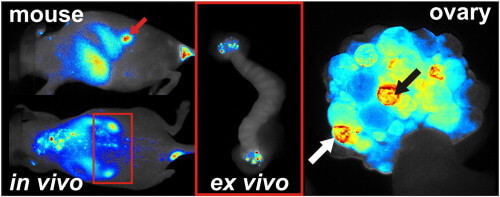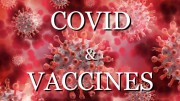Dr. Michael Yeadon called vaccination of young women with COVID-19 mRNA vaccines ‘stupid and reckless,’ citing papers showing that toxic nanoparticles accumulate in ovaries.
LifeSiteNews has produced an extensive COVID-19 vaccines resources page. View it here.
(LifeSiteNews) – Scientists have known for nearly a decade that the lipid nanoparticles like those currently used in novel mRNA COVID vaccines accumulate in ovaries and are potentially toxic to reproductive health, a former vice president and top researcher at Pfizer said at a conference hosted by LifeSiteNews Thursday on the fertility dangers of COVID vaccines.
“You’re not being told the truth,” said Michael Yeadon, former Pfizer Vice President and Chief Scientist Worldwide for Respiratory Pharmacology and Toxicology, who is now the Chief Scientific Advisor for the Truth for Health Foundation. “Thinking about this, I try to imagine that I was speaking to my own young adult daughters, for whom I would be very concerned if they got these vaccines.”
Yeadon cited scientific papers dating back to 2012 that warn of potential reproductive hazards of lipid nanoparticles that are used in COVID shots.
Both Moderna’s and Pfizer’s mRNA vaccines use specialized nanoparticle lipids or lipoproteins as carriers for their main ingredient – unstable mRNA protein that causes cells to produce the notorious coronavirus spike protein and elicit an immune response. These are the molecules that required the extremely low temperatures to preserve stability of the lipid encasing the fragile mRNA.
Accumulation in reproductive organs
German researchers reported in their paper published nine years ago, “Accumulation of nanocarriers in the ovary: A neglected toxicity risk?,” that there is a “potential toxicity risk of all nanoscaled drug delivery systems” and an accumulation of different microscopic carrier molecules in rodent ovaries. Their research involved injection of lipid “nanocarriers,” including some with an ingredient common to both Pfizer’s and Moderna’s mRNA COVID vaccines: polyethylene glycol.
Instead of loading the carriers with drugs or mRNA, the researchers from Martin Luther University Halle-Wittenberg Department of Pharmaceutical Technology and Biopharmaceutics and the University of Regensburg loaded the nanocarriers with a fluorescent dye they could trace. They reported a “high local accumulation of nanoparticles” in “specific locations of the ovaries” in all mice and rats treated with five different nanocarrier drug delivery systems of different sizes.
Remained in ovaries 25 days later
The fluorescence intensity was detectable in ovaries just two hours after injection and increased within ovaries after 24 hours and remained constant at a high level over several days. A bright fluorescence signal was detectable even 25 days after injection, they reported.
The German researchers warned that this accumulation in ovaries may alert to an “important toxicity issue in humans,” but they did not know. Perhaps, it “might as well open a new field of targeted ovarian therapies,” they reported and concluded that further study was necessary to discover the unknown impact of the phenomenon.
Pfizer’s unpublished data
These findings confirm a Pfizer “biodistribution study” of its lipid nanoparticle carrier system in lab animals which showed that the vaccine nanocarrier molecules leave the muscle site of injection, enter blood circulation, and then accumulate in organs and tissues, including the spleen, bone marrow, the liver, adrenal glands, and especially the ovaries.
The biodistribution study looked only at the nanoparticle carrier proteins and did not include the vaccine ingredient mRNA, which presumably would be delivered inside the carrier in the real world experiment and trigger production of spike protein in the cell it lands in, as intended.
Thalidomide disaster
“We never, ever give experimental treatments to pregnant women,” said Yeadon, pointing to the Thalidomide disaster, in which doctors gave women a drug in the 1950s and 1960s to treat nausea in pregnancy, resulting in thousands of children being born with severe deformities, including malformed organs, leading to death, shortened limbs, and missing fingers and toes.
“Thalidomide taught everyone a lesson. Now we know harms can happen, and so we’ve spent the last 60 years being really careful,” said Yeadon.
The Centers for Disease Control and Prevention (CDC) recommends all current experimental COVID vaccines, which have been granted Emergency Use Authorization only and are still in human clinical trials for another year at least, for pregnant and breastfeeding mothers.
Yeadon called government promotion of the vaccines to pregnant women and young women of reproductive age “stupid and reckless.”
“When they say they’re safe, you must know they don’t know that. They’ve not been around long enough for them to possibly evaluate.”
Yeadon, who has served as consultant to over 30 biotech companies and founded his own biotech company that later was sold to pharmaceutical giant Novartis, cited other research showing that the spike protein from the coronavirus, which all the current vaccines are based on, has similarities to human proteins that could induce autoimmune reactions, including reactions affecting fertility.
Data showing that 15 pregnant women who were vaccinated developed three-fold higher levels of antibodies against their own placentas was dismissed and hidden by the vaccine industry and public health, he said.
‘Do not take these vaccines’
The risks of ingredients in the COVID vaccines to fertility are too well documented to have been simply ignored, Yeadon suggested. “Do not take these vaccines,” he warned. “There’s a severe risk to your ability to conceive and carry a baby to term. Worse, these are deliberate acts which I believe whoever is doing it is lying about it to hide it and they’re smearing people who are trying to warn you. Who do you trust?”
Menstrual irregularities
The research cited by Yeadon could explain the tens of thousands of reports of menstrual irregularities, hundreds of reported miscarriages, and other reproductive issues following vaccines which have been reported to adverse event reporting systems worldwide.
This week, the U.K. Medicines and Healthcare products Regulatory Agency (MHRA) ruled that there was ‘no evidence’ that the 30,304 reactions reported to the Yellow Card system relating to a variety of menstrual disorders from women who had received one of the three COVID vaccines currently approved for use in the U.K. were in any way related to the injections.
Toxic effects
Dr. Elizabeth Lee Vliet, an independent physician specializing in reproductive hormones impact on general health and co-founder of the Truth for Health Foundation, pointed to another study, this one from 2018, in which researchers again warned of the reproductive toxicity of nanoparticles.
“Indeed, studies have shown that NPs [nanoparticles] are likely to have toxic effects on many organs, such as the brain, liver, and lungs, which are the most studied target organs,” the Chinese researchers reported in their paper, titled “Potential adverse effects of nanoparticles on the reproductive system.” “Only recently, attention has been directed toward the reproductive toxicity of nanomaterials.”
The study reviews literature showing that nanoparticles can pass through the blood–testis barrier, placental barrier, and barriers protecting reproductive tissues, and then accumulate in reproductive organs.
The accumulation of nanoparticles damages organs (testis, epididymis, ovary, and uterus) by destroying specific cells, leading to reproductive organ dysfunction that adversely affects sperm and eggs and may disrupt the ovarian cycle. “In addition, NPs can disrupt the levels of secreted hormones, causing changes in sexual behavior,” according to the researchers.
“It’s not just sexual behavior,” said Vliet, who has practiced climacteric medicine focusing on reproductive health and the impact of hormones on general health for 35 years. “It’s the health and optimal function of every organ in our body.”
The review paper cited earlier German research on nanocarriers but also looks at dozens of studies of other nanoparticlized or microscopic molecules including graphene oxide, titanium dioxide and catalogues their negative impact on various aspects of reproduction.
Impacts reproductive systems of newborns
In one 2015 study referenced, researchers injected a PEG polymer into rat puppies and concluded that “neonatal exposure to PEG-b-PLA might affect the development and function of hypothalamic-pituitary-ovarian axis (HPO), and thereby alter functions of the reproductive system in adult female rats.” In other words, newborns exposed to these nanoparticles did not develop normal reproductive systems.
LNP-driven safety parameters
Other studies by the vaccine industry have raised safety concerns over lipid nanoparticles (LPN). One 2018 study by researchers from COVID vaccine-makers Moderna and AstraZeneca UK and three other pharmaceutical companies looked at the safety of modified mRNA formulated in lipid nanoparticles (LNPs) after repeated intravenous infusion to rats and monkeys.
It described “primary safety-related findings” that were “mainly LNP driven.” These included increased hematopoiesis (production of blood components) in the liver, spleen, and bone marrow (rats) and “minimal hemorrhage in the heart (monkeys).” Other safety-related findings in the rat included “changes in the coagulation parameters at all doses, as well as liver injury,” and in the monkey, “splenic necrosis” and “lymphocyte depletion were observed.”
There is no evidence that the vaccine manufacturers looked at the effects of the LPN (or mRNA) on reproductive organs or function. The researchers concluded: “Future work will be geared toward evaluating different routes of administration, the effects of chronic dosing, and the risk to juvenile animals, as juveniles may be particularly important in the setting of rare disease.”
Two years was not a long time to answer all of the questions raised in the study about the long-term potential effects of modified mRNA or LPN in juvenile animals – let alone humans. Yet the CDC currently promotes Pfizer’s experimental vaccine for all children over age 12 and for pregnant and breastfeeding mothers.
The Moderna Spikevax COVID-19 vaccine was approved for 12 to 17-year-olds this week by the Medicines and Healthcare products Regulatory Agency (MHRA) of the United Kingdom.
Moderna and Pfizer did not reply to questions and requests for comment from LifeSiteNews before publication.





